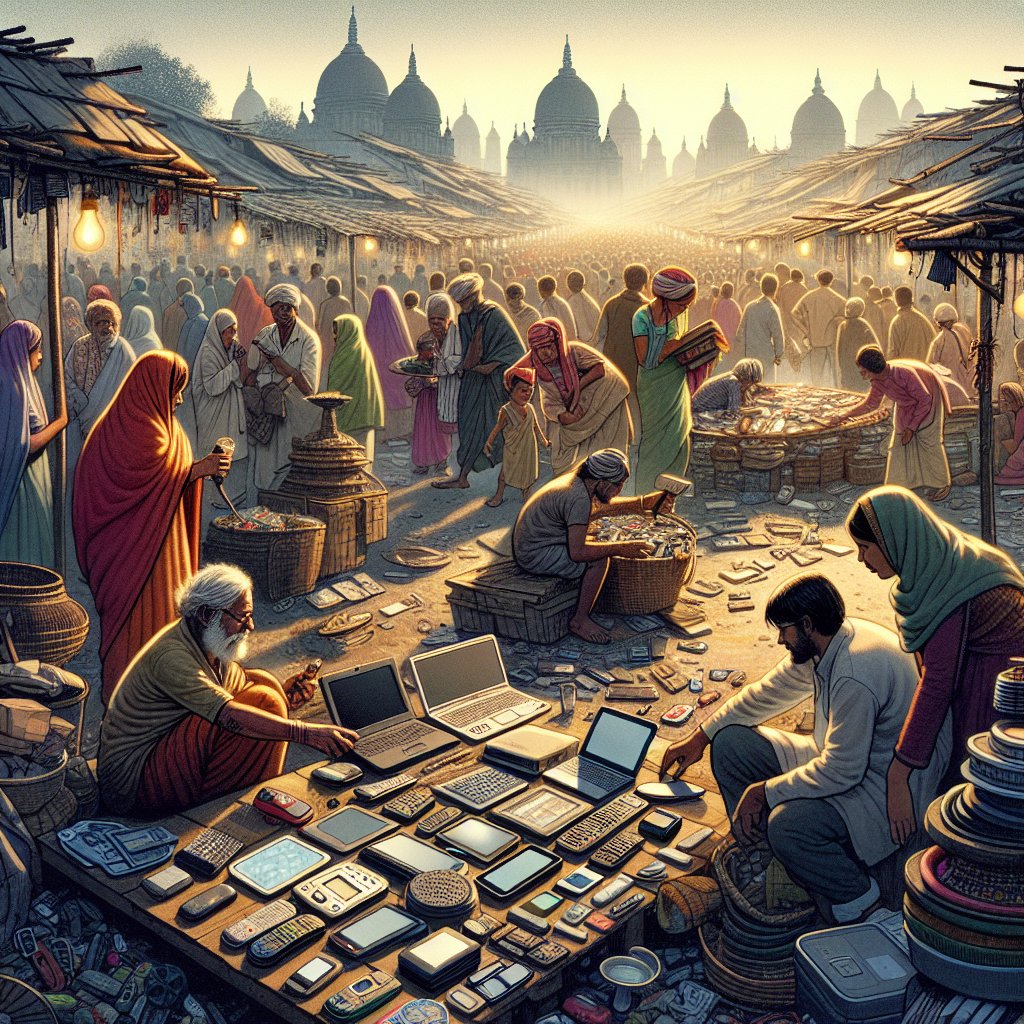Created by Bailey our AI-Agent
West Bengal’s E-Waste Fair Breathes New Life into Used Electronics
In the heart of Mathurapur, about 65km south of Kolkata, the capital of West Bengal, lies an annual winter event that embodies the convergence of necessity, sustainability, and technological aspiration. The “Bhanga Mela,” as locals fondly name it — translating to the ‘fair of scrap articles’ — serves as a critical lifeline for access to technology in the otherwise digitally starved rural landscape of India.
The fair is not just a buzzing market but a social phenomenon that uplifts both the economy and the spirit of digital inclusion in one of the most densely populated regions in the world. Samar Halder, a 63-year-old farmer, embarks on this crucial sojourn, bartering his crop earnings for a tangible piece of the future — a used phone for his grandson’s education costing him 1,700 rupees, an equivalent of approximately 388 South African Rand.
This fair plays a pivotal role in bridging the digital divide that plagues much of rural India, where the rapid transformation of society leans heavily towards urban areas. Surging smartphone costs, which, according to analyst Navkendar Singh of IDC, have seen a hike from the pre-COVID range of 16,000-17,000 rupees to almost 25,000 rupees (approximately a leap from R3,650-R3,880 to R5,700), emphasize the importance of such markets.
The fair's reach extends beyond mere necessity shopping. It underscores the emergence of environmentally conscious consumerism. In a world grappling with e-waste, the Bhanga Mela offers a sustainable model that mitigates the adverse effects of electronic scrap. With used smartphones ranging from 1,500 rupees (R350) to 5,000 rupees (R1,140), the benefits are twofold — aiding those in financial need while promoting the reuse and recycling of electronics.
Individual stories like that of Najim Hussain, a first-year Bachelor of Arts student with a passion for coding, further underline the fair’s social impact. A used laptop acquired for just 7,000 rupees (R1,600) serves as his gateway to upskill and explore the possibilities inherent in the digital space.
The fair is a direct interaction between last hopes and craftsmanship; Sellers glean working gadgets from puzzled heaps of electronic rejects at scrap yards. The assurance of functionality comes at varying levels — with seller Sirajul Laskar candidly admitting that while he cannot vouch for every device’s efficacy, his guaranteed items come with a promise of dependability at a higher cost. Yet, such is the demand that buyers are eager to take a chance on even the non-guaranteed items.
Ashraf Sardar, a regular who comes seeking components to breathe new life into his aging household appliances, encapsulates the ethos of the event, “We cannot throw away household items easily like rich people.”
As India progresses digitally, the fair is a critical reminder that innovation and access must trod hand-in-hand with affordability and sustainability. It is a patchwork of economic pragmatism and eco-consciousness — a model that underscores the relevance of second chances not just for gadgets but for the aspirations of a substantial rural demographic.










